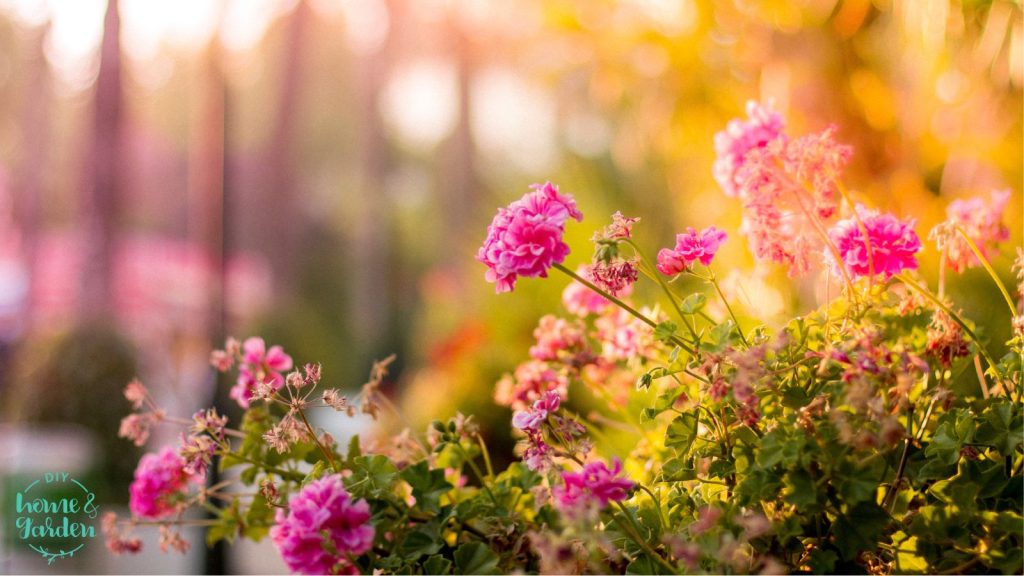Ready to enjoy the most flourishing garden ever?
There is more to cultivating a flourishing garden than simply sowing seeds, sitting back, and hoping for the best. Having a thorough awareness of the natural processes that are taking place in your garden, careful planning, and attention to detail are all required for this task. As a gardener, whether you are just starting or have years of experience under your belt, learn these tips and methods. They will help you take your gardening to the next level and create a lush, colorful outdoor space that you can be proud of.
6 Fantastic Tips for a Flourishing Garden
These six things will help you have the most colorful, bountiful garden of your life.
Healthy Soil Is Crucial
The soil is the bedrock upon which a flourishing garden is built and is located under the surface. For plants to flourish, they require the nutrients provided by healthy soil and teeming with helpful microbes. Do a soil test to ascertain the soil’s pH level and nutrient content. Depending on the findings, adding organic matter may improve the soil’s structure, drainage, and fertility.
Some examples of organic matter include compost, aged manure, and leaf mulch. By establishing a healthy ecosystem in the soil, your create the conditions for robust plant growth. You also limit the required synthetic fertilizers and pesticides.
Which Plants Can You Choose?
It is essential to your garden’s success to choose the appropriate plants to grow there. When deciding which plants to cultivate, it is important to consider various aspects, including the climate, the type of soil, the amount of sunshine exposure, and the amount of available space. It is important to research the individual requirements of each plant to ensure that they will flourish in the circumstances of your garden.
Introducing honey bees into your gardening plan can significantly enhance pollination and promote biodiversity. It’s a great way to keep your garden at its healthiest.
It is common for native plants to be well-adapted to the climate of their respective areas and thus require less water and maintenance. Furthermore, it is also important to select disease-resistant cultivars to reduce the likelihood of plant diseases spreading across your garden.
Use Water Wisely
It is easy to overwater plants even though proper watering is vital for establishing healthy plants. Because of this, the plant will withstand drought conditions better and develop deeper roots. One way to lessen water loss due to evaporation and waste is to use a soaker hose or drip irrigation system to direct the water flow to the root zone.
Using organic materials like straw, wood chips, or compost as mulch around plants can assist in retaining soil moisture, suppressing weed growth, and regulating soil temperature at the same time. It is important to monitor the levels of soil moisture routinely and to adapt your watering schedule as necessary based on the weather conditions and the requirements of the plants.
Companion Planting
Growing different plants together to reap the benefits of each other in a variety of ways is what is known as companion planting. The presence of certain plants might deter pests, while others can attract beneficial insects or increase the condition of the soil. Consider incorporating into your planting design companion planting combinations suitable for the plants already present in your garden after researching these combinations.
As an illustration, planting aromatic herbs such as basil or rosemary alongside vegetables can effectively ward off pests. Additionally, planting nitrogen-fixing legumes such as beans or peas can enhance soil fertility.
Utilize Integrated Pest Management (IPM)
Instead of relying simply on chemical pesticides to control pests, try an integrated approach incorporating different tactics to manage pest populations while reducing the harm caused to beneficial insects and the environment. The use of physical barriers, such as row coverings or netting, to shield plants from pests, the encouragement of natural predators, such as ladybugs or lacewings, and the practice of crop rotation to disrupt pests’ life cycles are all examples. Check your garden regularly for any indications of damage caused by pests. Early detection means you can take the necessary measures. Some examples of these methods include using insecticidal soaps or oils, hand-picking bugs, or introducing predatory insects or nematodes as biological controllers.
Routine Maintenance
It is vital to perform routine maintenance to maintain the health and bounty of your garden. Maintain the health and beauty of a plant through activities like weeding, trimming, and deadheading spent flowers. It is important to prune plants to promote bushier growth, enhance air circulation, and remove any branches that are unhealthy or dead. Removing the dead heads from flowers can prevent plants from directing their energy into creating seeds and stimulate ongoing flowering.
Maintain a heightened awareness for any indications of plant illnesses or pest infestations. Then, act swiftly to address these issues before they can spread further. Also, use high-quality tools like electric backpack sprayers as they typically require less maintenance than gas engines, resulting in lower operational costs; they also emit zero emissions when operating. That’s because they do not require gasoline or oil. This makes them better for the environment, as they significantly reduce emissions of greenhouse gases and environmental pollution.
The Takeaway: You Can Have a Flourishing Garden with These Six Tips
With the help of these six pointers and suggestions, you can cultivate a garden that not only endures but also flourishes, delivering aesthetic value and sustenance and serving as a haven for you and your loved ones. It is important to remember that gardening is a journey of discovery, experimenting, and ongoing education. Transforming your outdoor space into a flourishing garden of greenery and vitality comes from patience, care, and a little knowledge.



